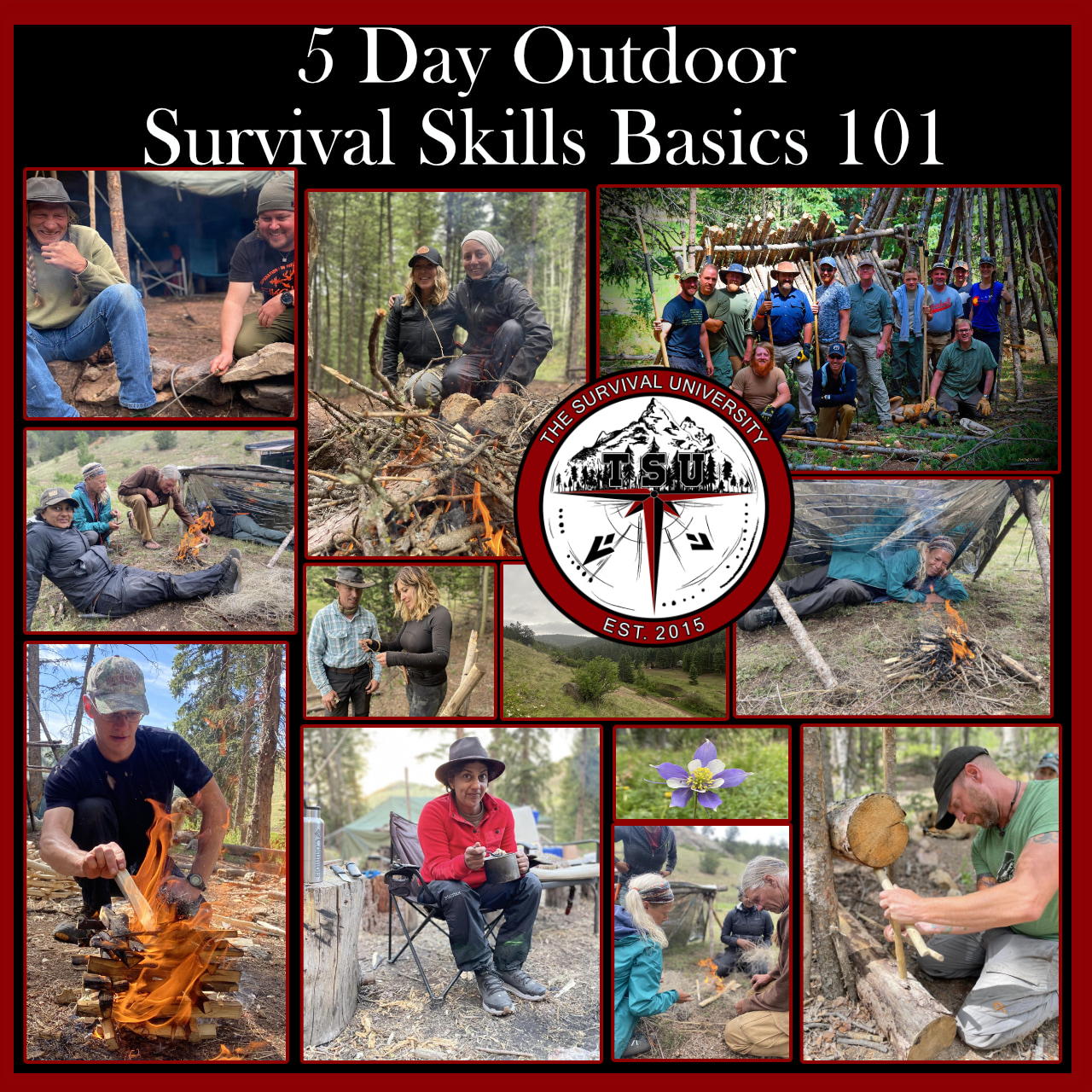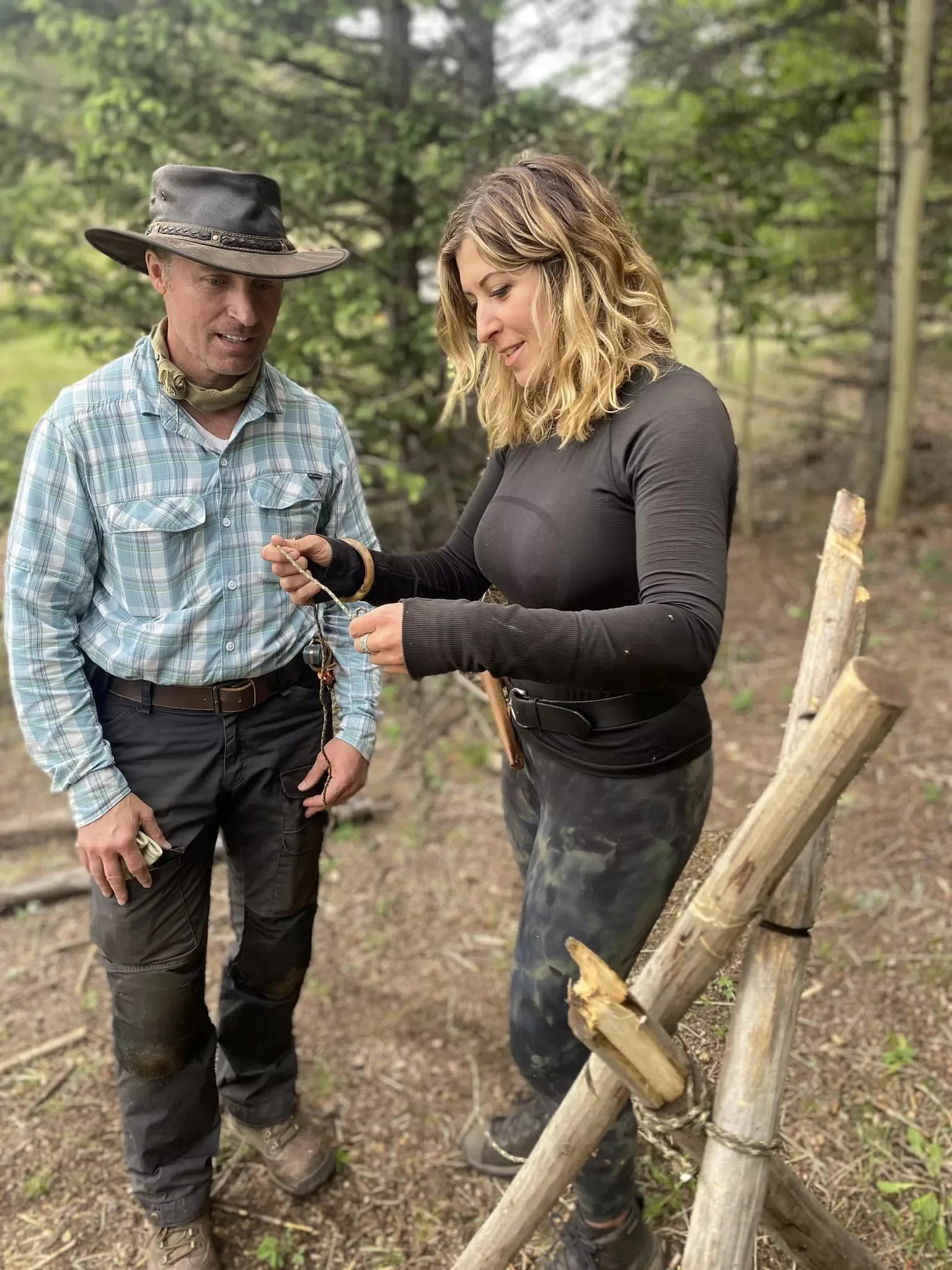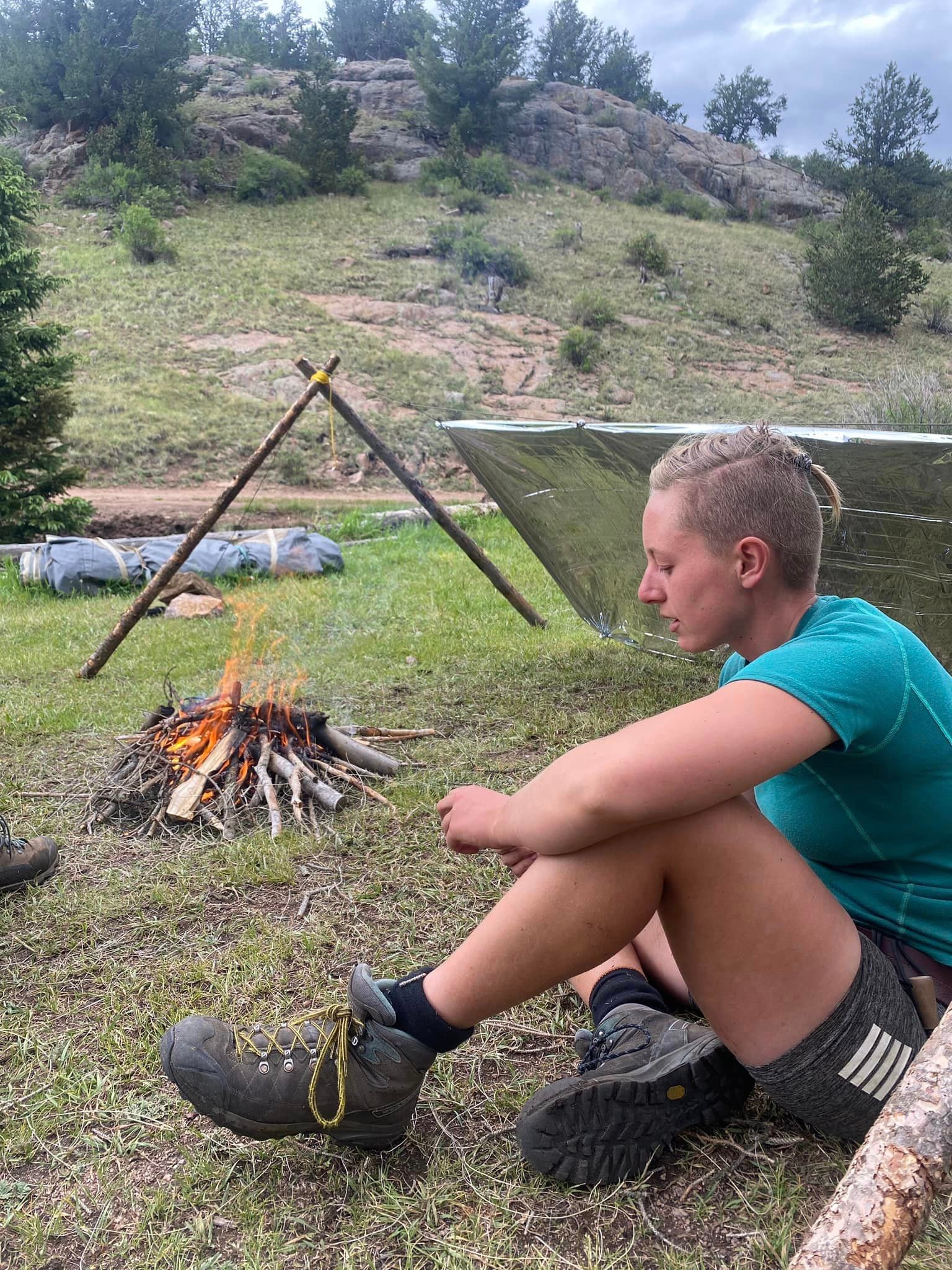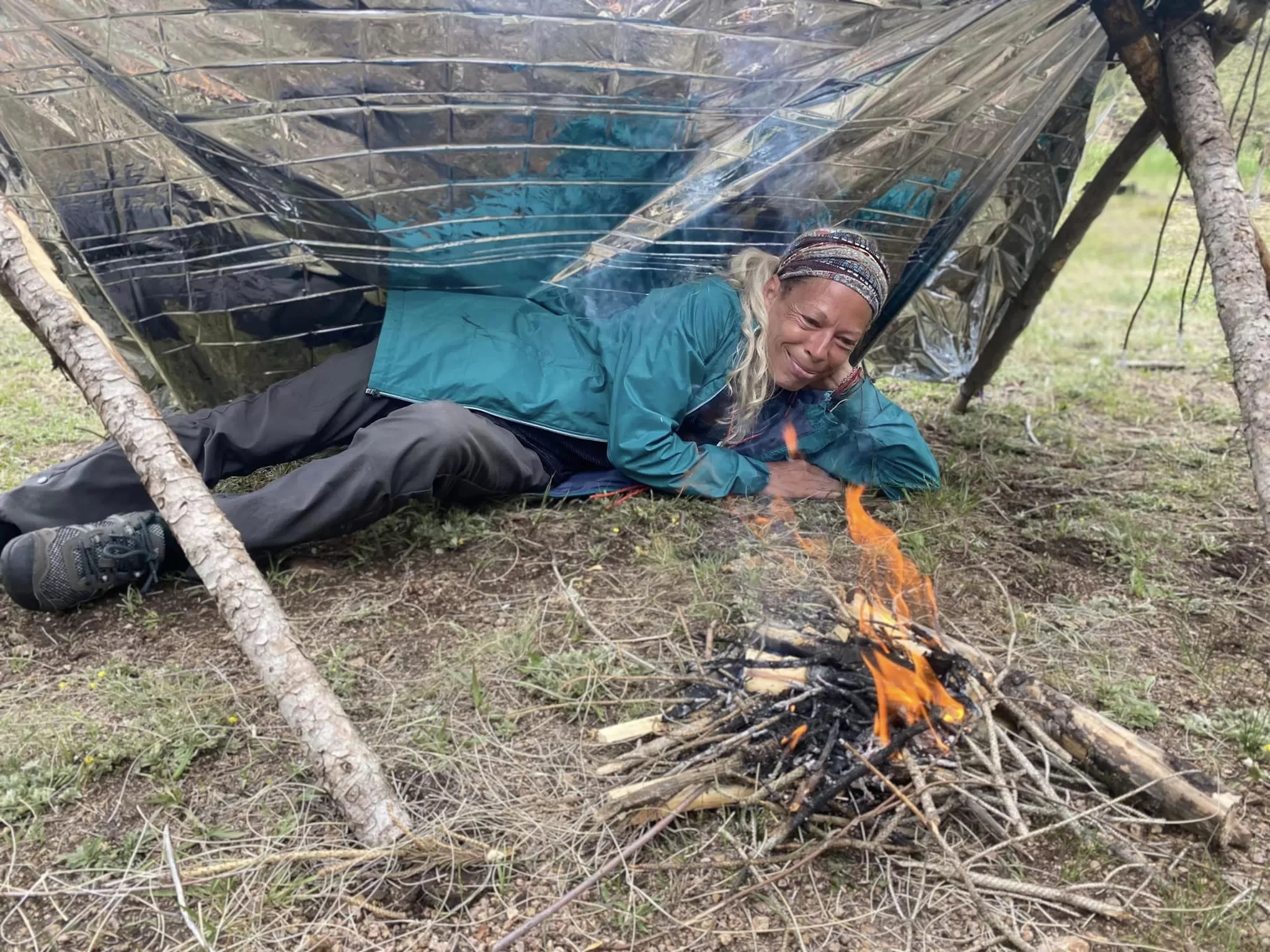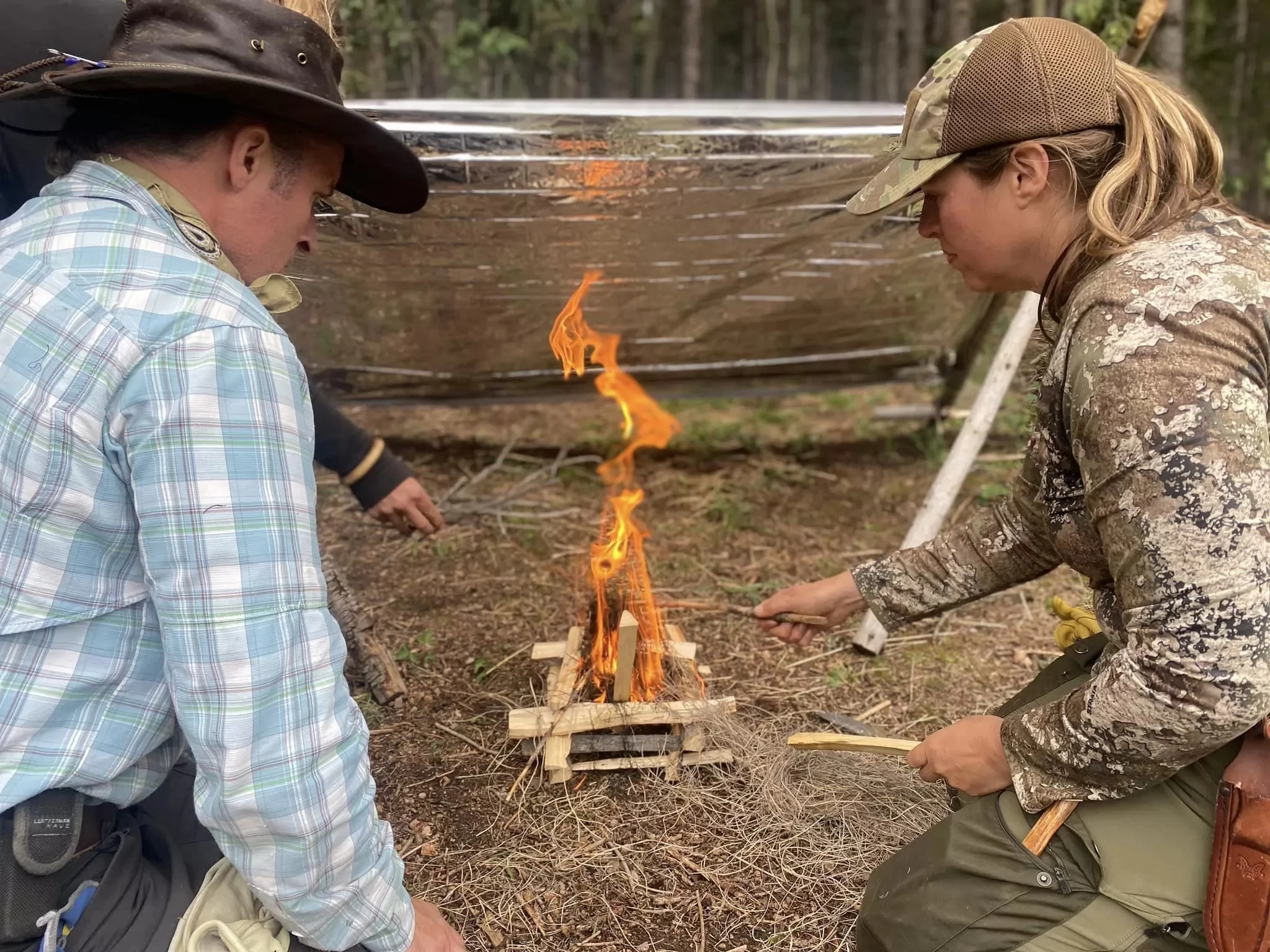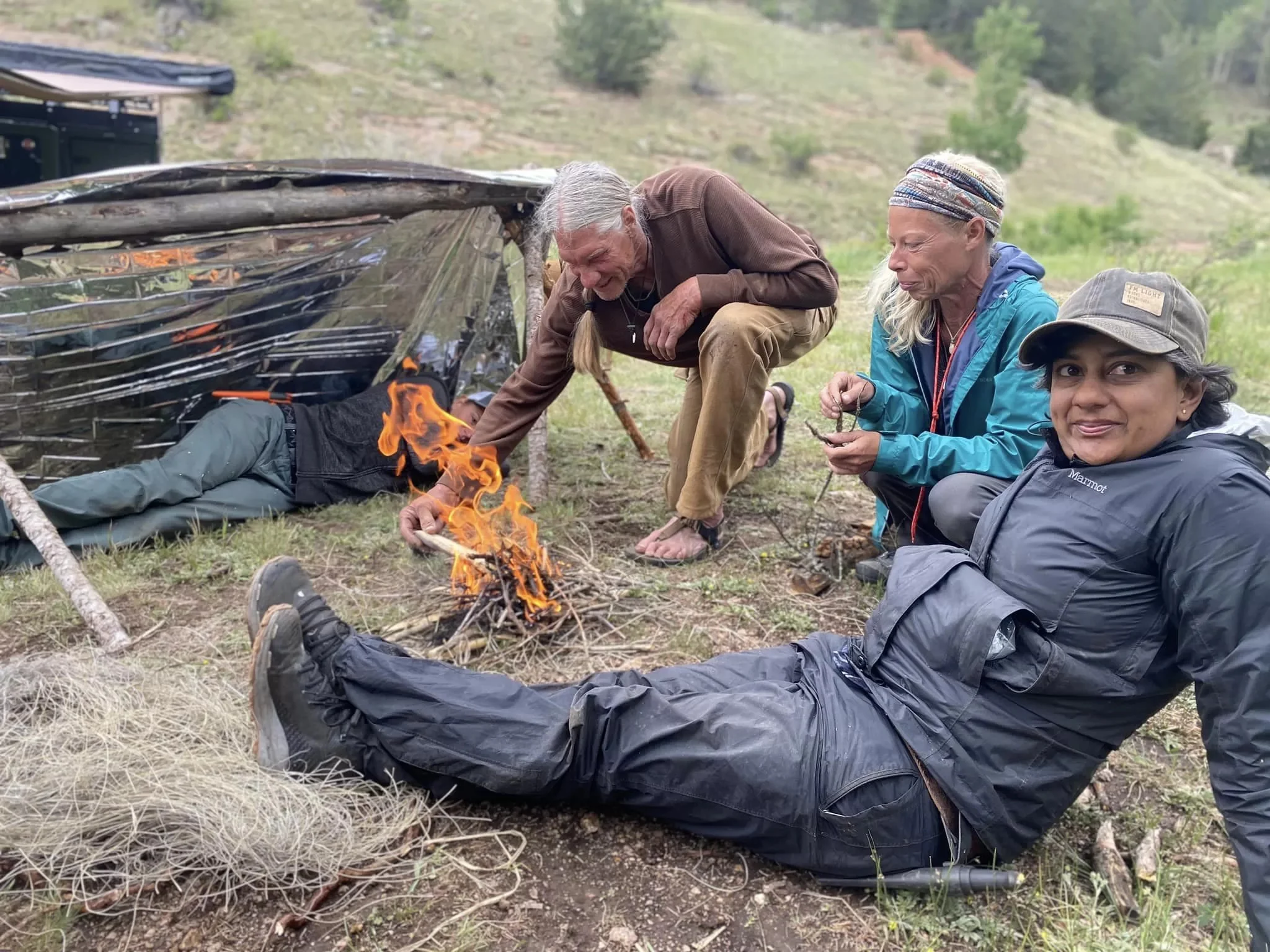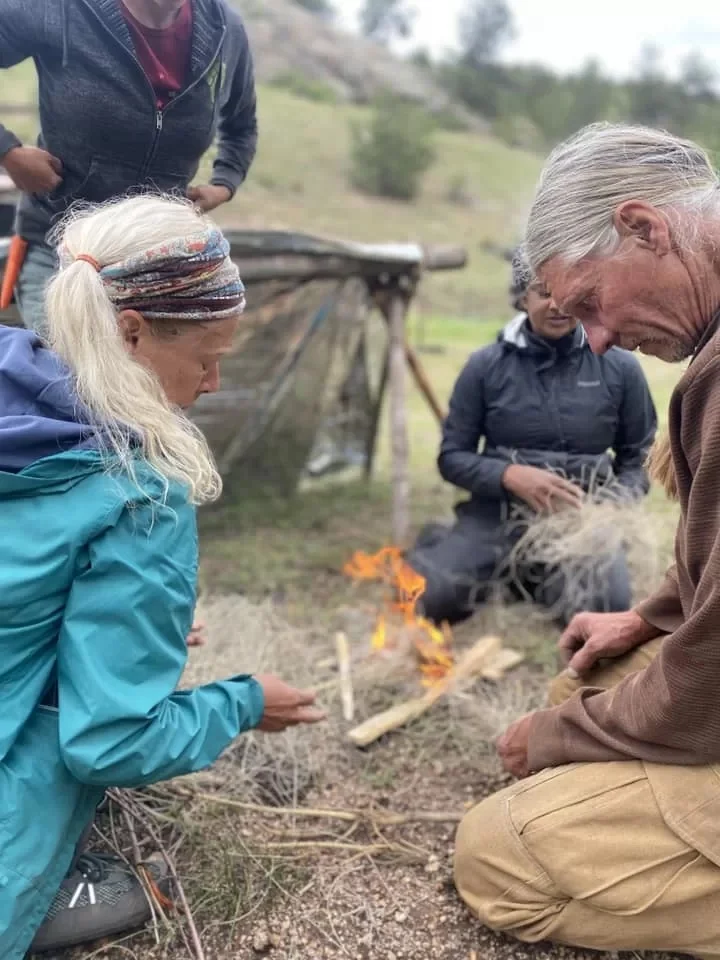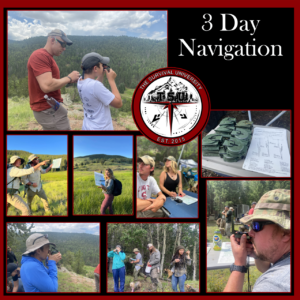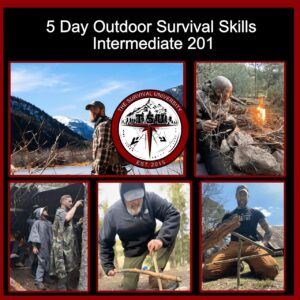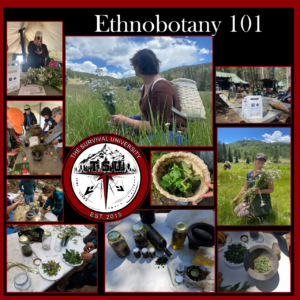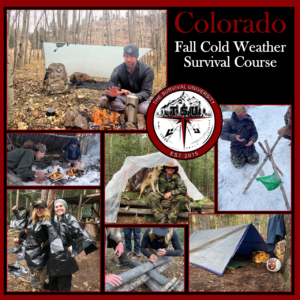Cart
5 DAY OUTDOOR SURVIVAL BASICS 101
$595.00
This course is very intensive and is almost entirely hands-on on with very little lecture time. This training is not so difficult that families and children can’t attend though. These are skills that will impress your friends the next time out camping or hunting and these are skills that tend to stick with you for a lifetime. The skills are taught in a laid-back survival camp environment. This survival training will help increase survivability, self-sustainability, bushcraft skills, and overall comfort in the wilderness.
Description
5 Day Outdoor Survival Basics 101
Location: Mountain Camp, Colorado 9,500 ft elevation, pine and aspen forest, private land
This five day course strips away the fluff and locks in the core survival skills that matter most when things go wrong. You’ll spend your days working with fire, shelter, water, navigation, food procurement, defense, and signaling until the motions become second nature. Expect short demos followed by plenty of hands on drills, real scenarios, and practical challenges that force you to apply what you’ve learned under pressure. By the end of the week, you’ll have the confidence to walk into the backcountry knowing you can keep yourself alive and get yourself home.
What you will learn
• Survival mindset and trip planning that prevents panic and keeps you in control
• Knife, axe, and saw work for real tasks with safety built into every drill
• Modern fire mastery using lighter, matches, and ferro rod until it becomes automatic
• Shelter builds that stand up to weather and multi night use, with fast repairs and insulation methods
• Water location, collection, and modern purification plus improvised field systems you can trust
• Map and compass navigation, pacing, terrain association, and simple move to a road techniques
• Food procurement hands on: snares, simple trapping concepts, spear making, slingshot fishing and hunting basics, handline fishing methods
• Low tech defense and use of improvised tools for protection and deterrence
• Signaling practice with mirrors, whistles, fire and ground to air markers that get noticed
• Short practical medical drills designed to point students toward our Wilderness First Responder course for deeper training
• Multi skill scenario work that forces decisions and teamwork under realistic constraints
Outcomes
By course end students will reliably
• Use knives, axes, and saws for cutting and survival tasks while staying safe
• Start and maintain fire under adverse conditions using modern tools
• Build weather ready shelters and perform fast repairs for multi night stays
• Find, collect, and purify water using modern and improvised methods
• Navigate with map and compass and use natural features to stay or move to safety
• Deploy basic snares and deadfall concepts, construct a spear or hunting stick, and run a handline for fish
• Use a slingshot as a hunting and signaling tool with practiced accuracy and safety drills
• Set up visible and audible signals that increase chance of rescue
• Apply simple wilderness first aid actions and understand when to escalate to WFR care
• Integrate skills during high stress scenarios and make practical choices under pressure
Daily flow with hands on focus
Day 1 Mindset, tools, and water systems
• Short mindset and lost proofing drill to set tone
• Knife, axe, and saw safety and repeated hands on tasks: cutting, batoning, notching, emergency repairs
• Water location exercises, improvised collection systems, filtering and purification stations with hands on practice
• Quick tarp shelter practice to sleep in later if needed
Day 2 Fire and navigation fundamentals
• Repeated ignition drills with lighter, matches, ferro rod until students can perform reliably under time and weather pressure
• Fire lays for heat, cooking, and signaling plus maintenance drills in wet and windy conditions
• Map and compass fundamentals in the field: orienting, aiming off, pacing and terrain association with short timed nav legs
Day 3 Weather ready shelters, camp safety, and energy management
• Build and test multi night tarp and debris shelters with insulation and weather proofing focus
• Camp safety routines for food, hygiene, and animal awareness practiced as checklists and role play
• Energy and movement management at altitude: pacing, calorie planning, emergency rationing drills
• Short plant ID walk focused on high value species only
Day 4 Food procurement, defense, and signaling
• Hands on spear and hunting stick construction and use drills with safety lanes and contact control practice
• Snare setup and trigger mechanics using mock targets and problem solving stations; legal and ethical brief only when needed
• Slingshot use for hunting and small game drills plus handline fishing practice from shore or streamside with demonstration of improvised hooks and lures as simple options
• Low tech defensive drills using walking stick, positioning and movement to reduce threat, and team safety patterns
• Signal station builds and daytime night time signaling drills integrating fire, smoke, mirrors, and ground to air markers
Day 5 Integrated scenario and skills showcase
• Multi stage scenario combining navigation, injury, lost party, fire, shelter, water, food procurement and signaling under time pressure
• Individual skill demos with instructor feedback and scoring so students leave knowing where to improve
• Introductory medical drills for bleeding, splinting, and hypothermia care. These give students a baseline and show the value of further Wilderness First Responder medical training.
• Course debrief and honest performance notes
Product Details
-
Course Name: 5-Day Outdoor Survival Basics
-
Location: Mountain Camp, Colorado – 9,500 ft elevation, pine and aspen forest, private land
-
Schedule: 9:00 AM – 5:00 PM each day
-
Duration: 5 Days
-
Approach: Hands-on training, practical skills, family-friendly, beginner-friendly
- Instructor Type: TSU Resident Instructor
-
Driving Directions: [Click here for directions]
Address: 71 Monarch Dr, Cripple Creek, CO 80813
(Important: Our camp is remote and GPS is often unreliable. Please read these directions carefully and have them saved or printed before you leave. Cell service is limited once you head into the mountains.)
Class Details
Accommodations
Students may camp on-site or stay in nearby towns. Cripple Creek is 15 minutes away, Woodland Park is 30 minutes. Students arrange their own lodging if not camping. At camp, a central fire ring and a few designated sites are available, with dispersed camping as the primary option. Cars can be parked within 100 feet of camp.
-
Sleeping Arrangements: Students are responsible for their own overnight shelter (tent, camper, hammock, or tarp setup).
-
Facilities: Porta potty restroom and potable water provided.
Food and Water
Potable water is available at camp. Students bring their own food. Quick meals like freeze-dried pouches or MREs are recommended, though you may bring any food suitable for campfire cooking or personal stoves. Local groceries and restaurants are nearby.
Gear List
Core Survival Tools
-
Fixed-blade knife (full tang, 4–5” blade, plain edge)
-
Ferrocerium rod and striker
-
Folding hand saw
-
100 feet of 550 paracord
-
Small backpack or daypack
Shelter & Sleep
-
Tent, tarp, or hammock
-
Sleeping bag and pad
-
Rain gear or poncho
Cooking & Water
-
Metal pot or cup
-
Eating utensils and small bowl/plate
-
Single-walled metal water bottle or canteen
-
Meals and snacks
Clothing
-
Non-cotton layers (wicking base, insulating mid, waterproof outer shell)
-
Outdoor boots and wool socks
-
Warm gloves and hat
-
Sunglasses, sunscreen, insect repellent
-
Shemagh, bandana, or scarf
Lighting & Miscellaneous
-
Headlamp with spare batteries
-
Personal first aid kit
-
Notebook and pencil (optional)
Optional Comfort Items
-
Camp chair or stool
-
Pillow or cushion
-
Extra snacks or comfort food
-
Camera or phone for photos

